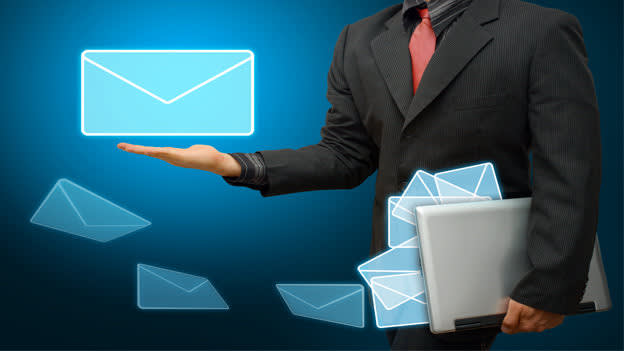Making the most of your official email

Privacy and the cyber-world aren’t really the best of friends, and in the era of synchronisation and automation, it is becoming increasingly common that employees are being penalised for the activities they conduct online. Monitoring and controlling, in some isolated cases, the virtual activity of employees is on the horizon of several organisations.
One such subtle methodology to streamline and formalise the communication of all their employees include providing an official or corporate email id, which the company domain name, at the time of joining the organisation. The reduced costs, and many benefits of having a personalised domain name, almost guarantees that you will be provided with a new email address when you join a new organisation.
Even if you are not provided one – the chances of which are extremely low – do not pull off a Hillary and make the mistake of using your existing personal id for business and professional purposes. Create a new email, and segregate your work and personal life. Now that you have one, make sure you utilise the email address judiciously. No one will really train you, or tell you about how you should use your email, and that makes you prone to making mistakes, especially if it is your first job. But the guidelines could be mentioned in the employee handbook, which you probably haven’t read. We have listed a few simple, yet often neglected points while using your official email id:
To-do:
Keep it organised: Having an overflowing email with a few hundred unread emails is likely to spell trouble for you over time. You risk missing out on important information, and waste time looking for a particular email when needed. Have priority folders wherein you can put relevant emails, use filters and immediately delete promotional or related materials.
Secure it: Don’t forget the basics of cyber security, just because you are not the owner of the email address. Create a strong password, sync the email with your phone, so that you know if anyone other than you accesses it, and do not click on every single link that is emailed to you. Since such emails are easily visible and listed publically, they are more vulnerable to spamming and viruses.
Reply within 24 hours: Although several etiquettes must be followed while emailing professionally, the most important of all could be replying in a timely manner. A delayed response doesn’t reflect positively on you, or the organisation you work for. Instantly respond to email that require you to merely acknowledge.
Not To-do:
Exchange sensitive personal information: Absolutely no to sharing bank account and credit card information, passwords, or storing scanned copies of documents. You don’t know who all have access to the email; hence do not share sensitive information. On a similar note, do not exchange information or have conversations that could potentially get you fired.
Use it for anything other than work: A lot of employees use their corporate email ids to shop online, or create social accounts (like LinkedIn), or to register with services like Netflix. Although it is tempting to let the spam and promotional offers from such websites steer clear of your personal email id, and direct them to the professional one, do not make this mistake. Your email id should not be given at places and portals outside of businesses purposes. Abuse of an email system, in extreme and rare cases, can be grounds for termination in some organisations.
Never ever use it for job hunting: Last but not the least, do not list your official email id on your resume. You should not look for new jobs or send applications using your corporate email id. There is of course the issue of privacy, but you should not do any activity that may be considered a conflict of interest to the organisation, which can snowball into a much larger issue.
Remember that the organisation you work for technically owns the email address, and not only has access to, but can also claim the information in the email if needed. Since cyber laws are still evolving, not only in our country, but all over the world, you need to be extra careful of your digital privacy, especially if the email you are using is owned and maintained by your employer. Using a separate email for work is almost necessity today, but with using such tools comes the responsibility of using them correctly.
Did we miss something? Let us know if you think that your official email can be made safer using any other trick!











